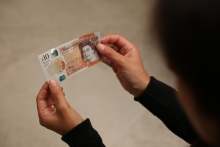What is tax avoidance?
Tax avoidance involves moving profits around so you have to pay a lower rate of tax. It uses loopholes in tax laws in ways that lawmakers never intended but which are legal.
For example, a multinational bank might set up a company in a tax haven, which lends large amounts of money to its subsidiaries in higher-tax paying areas. The bank can then pay back its own company out of its profits, lowering the taxable income in the high tax jurisdiction and moving money to the lower tax country.
Tax avoidance is different to tax evasion, which is illegal and involves hiding profits or fiddling accounts.
Read our article ‘What is tax avoidance?’ and find out which countries are on our list of tax havens.
Which banks are involved in tax avoidance?
Companies are often extremely opaque when it comes to their tax practices. However, the majority of the financial institutions we’ve reviewed are high risk for tax avoidance strategies.
We found that many banks own multiple companies in tax havens. These companies don’t appear to be serving the local population and are ‘high risk’ company types, e.g. holding companies, which are more likely to be used for tax avoidance purposes.
More and more companies are publishing statements on their tax practices. However, few give adequate information to demonstrate that they are not involved in tax avoidance, for example explaining the reasons for their tax haven subsidiaries.
In our Pensions guides, over 75% of companies received our Worst rating for likely use of tax avoidance strategies. In our Current Accounts guide, all of the big five high street banks – Lloyds (includes Bank of Scotland and Halifax), Santander, HSBC, Natwest (includes Royal Bank of Scotland), and Barclays – also received a Worst rating.
Find out more about our tax avoidance ratings.








